Search

A very arrogant white haired Tai Chi martial artist and two of his cronies wreaks havoc in a small village, terrorizing people and their families. Three local heroes team up to defeat the villainous three, but they have to find a secret weak point, which the Tai Chi master can choose and change at will.

American artist Winslow Homer’s illustrations for Harpers’ Weekly magazine earned high praise for their honest portrayal of the Civil War. Discouraged by the horrors he witnessed, Homer abandons his post and heads to the quiet of Houghton Farm to paint. His peace is soon disturbed by two curious teenagers who are intrigued by the cantankerous artist. Unable to shake them off, he asks them to be models. As they pose, Gabe and Fee become fast friends telling white lies as they each hide how painfully the war has shattered their own families. As Homer shares his personal experiences, he urges them to say goodbye to their ghosts and to move forward with their lives. Homer realizes the value of their friendship, as he works on a new painting at the schoolhouse, “Snap the Whip.”
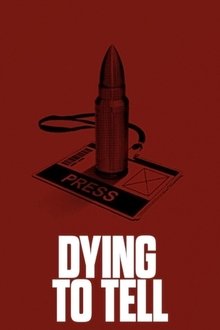
In 2012, awarded filmmaker Hernán Zin suffered an accident in Afghanistan that changed his life forever. The traumas he had been accumulating during 20 years of war reporting suddenly imploded. He began suffering depression, loneliness and self-destructive behaviors. Searching for answers of what happened to him, Hernán Zin decided to interview other journalists. He asked them about their traumas, their losses, their fears and their families. DYING TO TELL is the first documentary film ever made about trauma in war reporters. It is a brutal and torn portrait of war, and a tribute to those who risk their lives for the world to be informed. —Contramedia Films
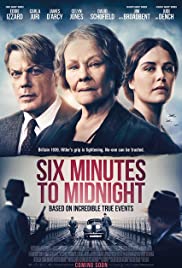
Summer 1939. Influential families in Nazi Germany have sent their daughters to a finishing school in an English seaside town to learn the language and be ambassadors for a future looking National Socialist. A teacher there sees what is coming and is trying to raise the alarm. But the authorities believe he is the problem.
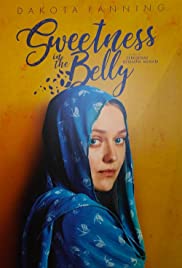
Lilly, orphaned as a child, experiences her parents homeland of England, escaping civil war. She becomes the heart of a disenfranchised community in London, where she attempts to reunite people with their families. But her friend Amira discovers Lilly’s mission isn’t purely altruistic and a passionate lost love affair is revealed between Lilly and Aziz, an idealistic doctor.
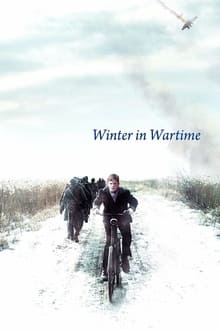
During World War II in the freezing Netherlands winter of 1944/1945 the western Netherlands are in the grip of a famine. Many people move east to provide for their families. Fourteen year old Michiel can’t wait to join the Dutch resistance, to the dismay of his father, who, as mayor, works to prevent escalations in the village.

Luke Mackenzie remains steadfast in his faith, although his family is tested with trials that would tear most families apart. His eldest son, Jacob, sets out on his own only to find his father waiting with open arms on his return.

In 2015, Ossamah Al Mohsen and her son were the victims of a trip on the Hungarian border by a television reporter in her desperate flight from a Syria at war. The cameras captured this moment by scandalizing public opinion. This kick allowed Ossamah, famous soccer coach in his country, to arrive in Madrid and resume his profession. But the rest of his family did not have the same luck. The story of Ossamah allows us to reflect on the survival of thousands of Syrian families trapped in Turkey but also that of Moatassam, Youssef and Muhannad, three promising Syrian footballers who were robbed of the best years of their lives by war.

World War II was not just the most destructive conflict in humanity, it was also the greatest theft in history: lives, families, communities, property, culture and heritage were all stolen. The story of Nazi Germany’s plundering of Europe’s great works of art during World War II and Allied efforts to minimize the damage.

Immortalised as one of the most scintillating and uplifting Christmas songs, ‘Carol of the Bells’ adapted from a popular and loved Ukrainian folk melody, came to represent the spirit of brotherhood and unity all over the world. The peaceful and neighbourly existence of three families, Polish, Ukrainian and Jewish, sharing a large house, musical evenings and merriment in the city of Stanislaviv in the years preceding and post war, is shattered. First in the Soviet occupation and the persecution of the Polish family, then, by the Nazi occupation of Ukraine, and the decimation of the Jewish family. Sacrificing their lives the Ukrainian family manage to save their neighbours’ children and their own daughter. Death and loss come to these families, but the healing power and joy , and a promise that the Future Will Not be Cancelled which “Carol of the Bells’ evokes will be everlasting.

In the spring of 2004, Massachusetts began the final battle of its journey towards legalizing same-sex marriage. This documentary follows a few local couples & their families through the months leading up to & shortly after that defining occasion in LGBTQ+ history, culminating in their respective weddings. Also includes interviews with active opponents attempting to discourage the movement (& failing, of course). Premiered at the Independent Film Festival of Boston in April 2005, just a month short the decision’s one-year anniversary.

Freemont Gordon isn’t passionate about his successful job as an architect in Los Angeles. After turning 30, he finds his job isn’t enough, so he quits and takes a road trip—and along the way meets some amazing and generous people. Freemont shows his thanks for their hospitality by building secret tree houses for the families in the hope of giving their kids fun places to play. Ultimately, he finds that doing what he loves—is what matters most.

A gripping tale of WWII naval warfare in the Baltics, starring John Mills as Lt. Freddie Taylor, a British submarine Captain. The crew of the Sea Tiger are summoned from leave on shore with their families, and sent on a secret mission to intercept the Nazi battleship Brandenburg. In the ensuing battle the British submarine is damaged by a German destroyer. The submarine is leaking fuel so badly that the crew won’t be able to make it back to Britain before running out somewhere along the Danish coast. When it seems that their only option may be to blow up the submarine and try to escape to Denmark, seaman James Hobson hatches a plan…

Germany 1945, Max, a Jewish Holocaust survivor, meets a radical group of Jewish resistance fighters, who, like him, lost all hope for their future after they were robbed of their existence and their entire families were killed by the Nazis. They dream of retaliation on an epic scale for the Jewish people. An eye for an eye, a tooth for a tooth. Max starts identifying with the group’s monstrous plans…

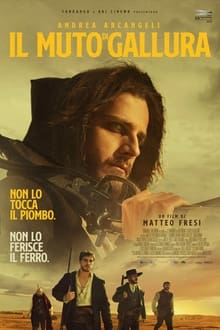
Gallura, the mid-1800s. The feud between the Vasa and Mamia families – historically documented – is causing bloodshed in the region. Bastiano Tansu, a deaf-mute since birth, is one of its protagonists. Mistreated and marginalized since his childhood, after his brother Michele was murdered he joined forces with one of the two leaders of the factions, Pietro Vasa, and put at his service his fury and his amazing aim, becoming a highly feared assassin. The State and the Church try to stem the wave of terror and only after more than 70 deaths, the peace of Aggius arrives. At first, Bastiano finds peace in his love for a pastor’s daughter, but in a violent and superstitious world that already labeled him the devil’s son when he was just a boy, someone like him cannot be found innocent. Thus, he chooses to confront his own destiny.
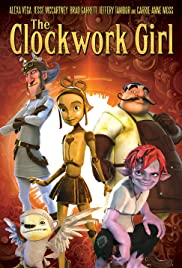
A nameless robot girl has recently been given the gift of life from her creator, while exploring the wonders of an ordinary world she meets an amazing mutant boy and they share a friendship that must overcome their warring families.
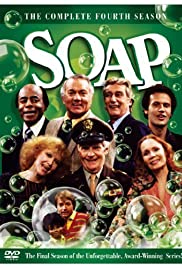
Soap is an American sitcom that originally ran on ABC from 1977 into 1981. The show was created as a night-time parody of daytime soap operas, presented as a weekly half-hour prime time comedy. Similar to a soap opera, the show’s story was presented in a serial format and included melodramatic plot elements such as alien abduction, demonic possession, murder, and kidnapping.
In 2007 it was listed as one of Time magazine’s “100 Best TV Shows of All-TIME,” and in 2010, the Tates and the Campbells ranked at number 17 in TV Guide’s list of “TV’s Top Families”.
The show was created, written, and executive produced by Susan Harris, and also executive produced by Paul Junger Witt and Tony Thomas. Each returning season was preceded by a 90-minute retrospective of the previous season. Two of these retrospectives were made available on VHS in 1994.
The show aired 85 episodes over the course of four seasons. The final four episodes of the series aired as one-hour episodes during the original run on ABC. These hour-long episodes were later split in two, yielding 93 half-hour episodes for syndication.
All episodes are currently available on region 1 DVD in four separate box sets. In the past, the series has rerun on local syndicated channels as well as on cable on Comedy Central and TV Land. It ran on over-the-air television on Antenna TV, until December 30th, 2012.
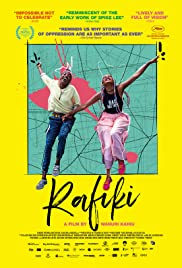
Kena and Ziki long for something more. Despite the political rivalry between their families, the girls resist and remain close friends, supporting each other to pursue their dreams in a conservative society. When love blossoms between them, the two girls will be forced to choose between happiness and safety.
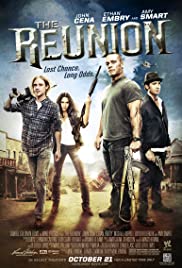
The Cleary brothers, Sam (John Cena), Leo (Ethan Embry) and Douglas (Boyd Holbrook) took dysfunctional families to a new level: Sam and Leo have grown up hating each other and neither likes their juvenile delinquent kid brother, Douglas, to whom they’ve only recently been introduced. The sons share the same father, a womanizing drunk, but all have different mothers. Their father died a rich man and when they’re brought together by their sister Nina (Amy Smart) to learn which of them will inherit the old man`s fortune, they are handed an unpleasant surprise.
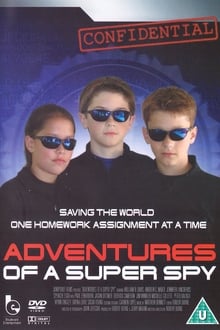
Max and his friends Jessica and Scott get their thrills by spying on their families sneaking into each others houses and organizing elaborate pranks. Thanks to Max’s Uncle, a Government Scientist, they have access to some of the most modern and Hi-tech equipment in the world. When they discover the whereabouts of a stolen FBI microchip Max and his friends must use their skills and cutting edge technology to embark on what could prove to be the most risky and exciting mission of their lives.
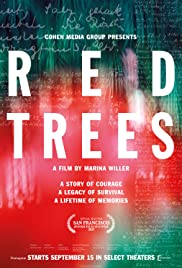
Award-winning filmmaker, Marina Willer (Cartas da Mãe), creates an impressionistic visual essay as she traces her father’s family journey as one of only twelve Jewish families to survive the Nazi occupation of Prague during World War II. Photographed by Academy Award® nominee César Charlone (City of God), the film travels from war-torn Eastern Europe to the color and light of South America and is told through the voice of Willer’s father Alfred (as narrated by Tim Pigott-Smith, Quantum of Solace), who witnessed bureaucratic nightmares, transportations and suicides but survived to build a post-war life as an architect in Brazil. As the world struggles with the current refugee crisis, RED TREES is a timely look at a family besieged by war who finds peace across an ocean.
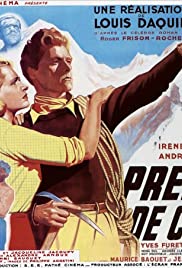
A screen adaptation of the well-known novel by Roger Frison-Roche about the harsh lives of mountain guides and their families in the French Alps, near Chamonix and the French/Swiss/Italian borders… Like his father, Zian Servettaz is a dedicated mountain man. His Italian-born wife Bianca does not adjust well to his mountain village in France, and to the ever life-threatening dangers presented by his mountain guiding and climbing. She briefly returns to Italy and to her family. However, after Zian’s insistence and trip to Italy, she returns to mountain life in the French Alps. Once back there, events will unfold, changing their lives as well as those of other mountain people forever.